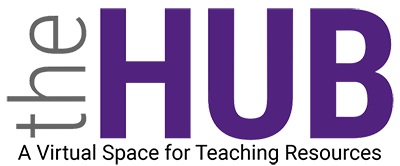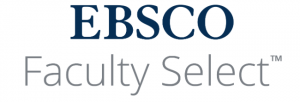
What is Copyright?
Copyright is a type of intellectual property that protects original works of authorship as soon as an author fixes the work in a tangible form of expression. Visit https://www.copyright.gov/ to learn more about the basics of copyright.
The resources listed here are in place to support instruction and provide guidance.
Copyright law provides educators with a separate set of rights in addition to fair use, to display (show) and perform (show or play) others’ works in the classroom. These rights are in Section 110(1) of the Copyright Act and apply to any work, regardless of the medium.
Until recently, however, when the classroom was remote, the law’s generous terms for face-to-face teaching in Section 110(1) shrank dramatically in Section 110(2) — some would say to the vanishing point!
These severe limitations on what could be performed in distance education received lots of attention. In 1998, Congress directed the Copyright Office to prepare a report recommending what should be done to facilitate digital technologies in distance education.
The Copyright Office prepared its report and recommended significant changes. In March 2001, a bill was introduced closely tracking the Copyright Office’s recommendations. It took almost 2 years, but the TEACH Act finally became law in late 2002.
The TEACH Act expands the scope of educators’ rights to perform and display works and make copies integral to such performances and displays for digital distance education, making the rights closer to those we have in face-to-face teaching. But there is still a considerable gap between what the statute authorizes for face-to-face teaching and distance education. For example, as indicated above, an educator may show or perform any work related to the curriculum, regardless of the medium, face-to-face in the classroom – still images, music of every kind, even movies. There are no limits and no permission required. Under 110(2), however, the same educator would have to pare down some of those materials to show them to distant students even as revised and expanded. The audiovisual and dramatic musical works may only be shown as clips — “reasonable and limited portions,” the Act says.
What is the TEACH Act and how you can protect yourself from copyright infringement?
Technology, Education and Copyright Harmonization (“TEACH”) Act (S. 487)
This guide provides information on copyright and creative commons for faculty.
Use this guide for information and guidance on copyright issues.
Copyright Definition
According to the US Copyright Office, “copyright is a type of intellectual property that protects original works of authorship as soon as an author fixes the work in a tangible form of expression.” Breaking that down further:
“Works are original when they are independently created by a human author.” Independent creation means the author created it themselves, without copying.
“A work is fixed when it is captured…in a sufficiently permanent medium such that the work can be perceived, reproduced, or communicated for more than a short time.”
Montgomery College Library supports college affordability and z-course creation by helping faculty discover and adopt no-cost, high-quality e-books and e-textbooks for their courses. This service supports the MC Open initiative, which aims to “leverage pedagogy that fosters student success while reducing costs and increasing access to course materials.”
Open Educational Resources
MC Library E-Books
E-Books Available for Purchase
Faculty Select is a self-service platform that allows faculty to find and adopt an e-book or e-textbook to use as their course text. Faculty Select contains thousands of high-quality titles on a wide variety of academic subjects.
How to Find an E-Book or E-Textbook for a Z-Course
- Open the Faculty Select platform.
- ACCESS FACULTY SELECT
- Search for an item to adopt as your course text by keyword, title, or author
- Preview as many titles as you would like by clicking the preview links until you locate one you would like to adopt.
- What is the TEACH Act, and how can you protect yourself from copyright infringement? (pdf)
- POLICY Board of Trustees: Use of Copyrighted Materials (pdf)
- Policy Notice on Copyright Violations (pdf)
- Student Release of Course Materials for Public Availability (pdf)
- Creative Commons: A standard way to legally share your work

